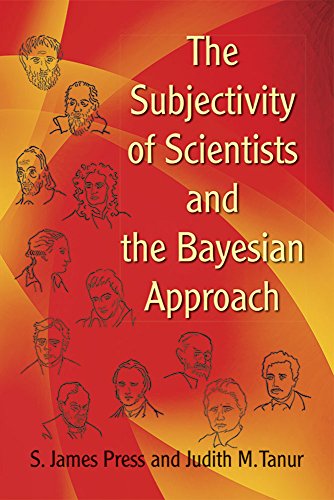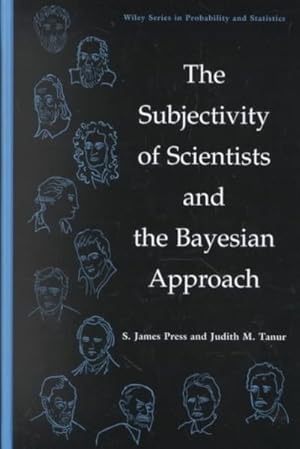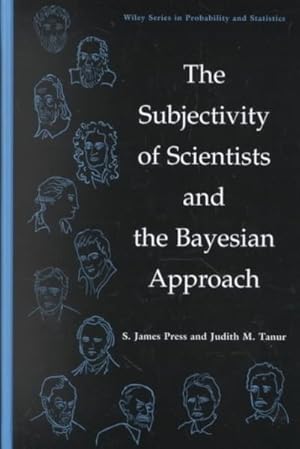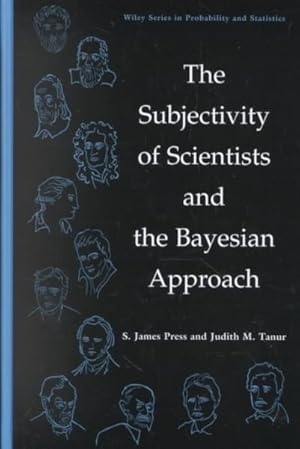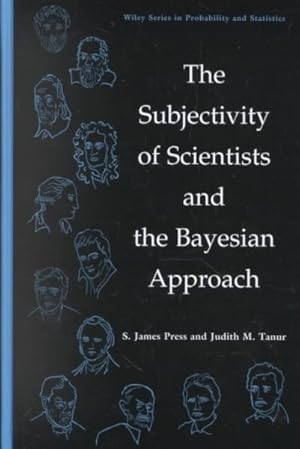subjectivity scientists bayesian approach di press james (27 risultati)
Filtri di ricerca
Tipo di articolo
- Tutti i tipi di prodotto
- Libri (27)
- Riviste e Giornali (Nessun altro risultato corrispondente a questo perfezionamento)
- Fumetti (Nessun altro risultato corrispondente a questo perfezionamento)
- Spartiti (Nessun altro risultato corrispondente a questo perfezionamento)
- Arte, Stampe e Poster (Nessun altro risultato corrispondente a questo perfezionamento)
- Fotografie (Nessun altro risultato corrispondente a questo perfezionamento)
- Mappe (Nessun altro risultato corrispondente a questo perfezionamento)
- Manoscritti e Collezionismo cartaceo (Nessun altro risultato corrispondente a questo perfezionamento)
Condizioni Maggiori informazioni
- Nuovo (21)
- Come nuovo, Ottimo o Quasi ottimo (2)
- Molto buono o Buono (3)
- Discreto o Mediocre (Nessun altro risultato corrispondente a questo perfezionamento)
- Come descritto (1)
Legatura
Ulteriori caratteristiche
- Prima ed. (4)
- Copia autograf. (Nessun altro risultato corrispondente a questo perfezionamento)
- Sovracoperta (Nessun altro risultato corrispondente a questo perfezionamento)
- Con foto (8)
- Non Print on Demand (27)
Lingua (1)
Spedizione gratuita
Paese del venditore
Valutazione venditore
-
hardcover. Condizione: Good. Connecting readers with great books since 1972! Used textbooks may not include companion materials such as access codes, etc. May have some wear or writing/highlighting. We ship orders daily and Customer Service is our top priority!
-
The Subjectivity of Scientists and the Bayesian Approach (Dover Books on Mathematics)
Da: World of Books (was SecondSale), Montgomery, IL, U.S.A.
Condizione: Very Good. Item in very good condition! Textbooks may not include supplemental items i.e. CDs, access codes etc.
-
The Subjectivity of Scientists and the Bayesian Approach
Editore: Dover Publications, Incorporated, 2016
ISBN 10: 0486802841 ISBN 13: 9780486802848
Lingua: Inglese
Da: Better World Books, Mishawaka, IN, U.S.A.
Condizione: Very Good. Used book that is in excellent condition. May show signs of wear or have minor defects.
-
The Subjectivity of Scientists and the Bayesian Approach.; Wiley Series in Probability and Statistics (Book 362)
Da: J. HOOD, BOOKSELLERS, ABAA/ILAB, Baldwin City, KS, U.S.A.
Hardcover. 296pp. As new, clean, tight & bright condition without dust jacket as published.
-
The Subjectivity of Scientists and the Bayesian Approach (Dover Books on Mathematics)
Da: GoldBooks, Denver, CO, U.S.A.
Condizione: new.
-
The Subjectivity of Scientists and the Bayesian Approach
Da: Basi6 International, Irving, TX, U.S.A.
Condizione: Brand New. New. US edition. Expediting shipping for all USA and Europe orders excluding PO Box. Excellent Customer Service.
-
Hardcover. Condizione: New.
-
The Subjectivity of Scientists and the Bayesian Approach (Dover Books on Mathematics)
Da: The Book Spot, Sioux Falls, MN, U.S.A.
Paperback. Condizione: New.
-
EUR 154,41
EUR 2,29 per la spedizione in U.S.A.QuantitÓ: Pi¨ di 20 disponibili
Aggiungi al carrelloCondizione: As New. Unread book in perfect condition.
-
EUR 168,69
EUR 2,29 per la spedizione in U.S.A.QuantitÓ: Pi¨ di 20 disponibili
Aggiungi al carrelloCondizione: New.
-
The Subjectivity of Scientists and the Bayesian Approach (Hardcover)
Editore: John Wiley & Sons Inc, New York, 2001
ISBN 10: 0471396850 ISBN 13: 9780471396857
Lingua: Inglese
Da: Grand Eagle Retail, Bensenville, IL, U.S.A.
Prima edizione
Hardcover. Condizione: new. Hardcover. Comparing and contrasting the reality of subjectivity in the work of history's great scientists and the modern Bayesian approach to statistical analysis Scientists and researchers are taught to analyze their data from an objective point of view, allowing the data to speak for themselves rather than assigning them meaning based on expectations or opinions. But scientists have never behaved fully objectively. Throughout history, some of our greatest scientific minds have relied on intuition, hunches, and personal beliefs to make sense of empirical data-and these subjective influences have often aided in humanity's greatest scientific achievements. The authors argue that subjectivity has not only played a significant role in the advancement of science, but that science will advance more rapidly if the modern methods of Bayesian statistical analysis replace some of the classical twentieth-century methods that have traditionally been taught. To accomplish this goal, the authors examine the lives and work of history's great scientists and show that even the most successful have sometimes misrepresented findings or been influenced by their own preconceived notions of religion, metaphysics, and the occult, or the personal beliefs of their mentors. Contrary to popular belief, our greatest scientific thinkers approached their data with a combination of subjectivity and empiricism, and thus informally achieved what is more formally accomplished by the modern Bayesian approach to data analysis. Yet we are still taught that science is purely objective. This innovative book dispels that myth using historical accounts and biographical sketches of more than a dozen great scientists, including Aristotle, Galileo Galilei, Johannes Kepler, William Harvey, Sir Isaac Newton, Antoine Levoisier, Alexander von Humboldt, Michael Faraday, Charles Darwin, Louis Pasteur, Gregor Mendel, Sigmund Freud, Marie Curie, Robert Millikan, Albert Einstein, Sir Cyril Burt, and Margaret Mead. Also included is a detailed treatment of the modern Bayesian approach to data analysis. Up-to-date references to the Bayesian theoretical and applied literature, as well as reference lists of the primary sources of the principal works of all the scientists discussed, round out this comprehensive treatment of the subject. Readers will benefit from this cogent and enlightening view of the history of subjectivity in science and the authors' alternative vision of how the Bayesian approach should be used to further the cause of science and learning well into the twenty-first century. This book illustrates scientific methodology through descriptions of how actual scientists "create science. " The authors present a novel point of view, arguing that the popular perception of science as being strictly objective is untrue and that knowledge is often acquired through very personal means. Shipping may be from multiple locations in the US or from the UK, depending on stock availability.
-
Subjectivity of Scientists and the Bayesian Approach
Da: GreatBookPricesUK, Woodford Green, Regno Unito
EUR 155,30
EUR 17,09 per la spedizione da Regno Unito a U.S.A.QuantitÓ: Pi¨ di 20 disponibili
Aggiungi al carrelloCondizione: As New. Unread book in perfect condition.
-
Subjectivity of Scientists and the Bayesian Approach
Da: GreatBookPricesUK, Woodford Green, Regno Unito
EUR 160,13
EUR 17,09 per la spedizione da Regno Unito a U.S.A.QuantitÓ: Pi¨ di 20 disponibili
Aggiungi al carrelloCondizione: New.
-
The Subjectivity of Scientists and the Bayesian Approach
Da: Ria Christie Collections, Uxbridge, Regno Unito
EUR 166,74
EUR 13,65 per la spedizione da Regno Unito a U.S.A.QuantitÓ: Pi¨ di 20 disponibili
Aggiungi al carrelloCondizione: New. In.
-
The Subjectivity of Scientists and the Bayesian Approach (Wiley Series in Probability and Statistics)
Editore: Wiley-Blackwell 2001-04-24, 2001
ISBN 10: 0471396850 ISBN 13: 9780471396857
Lingua: Inglese
Da: Chiron Media, Wallingford, Regno Unito
EUR 170,17
EUR 17,65 per la spedizione da Regno Unito a U.S.A.QuantitÓ: Pi¨ di 20 disponibili
Aggiungi al carrelloHardcover. Condizione: New.
-
The Subjectivity of Scientists and the Bayesian Approach
Da: THE SAINT BOOKSTORE, Southport, Regno Unito
EUR 171,36
EUR 18,79 per la spedizione da Regno Unito a U.S.A.QuantitÓ: Pi¨ di 20 disponibili
Aggiungi al carrelloHardback. Condizione: New. New copy - Usually dispatched within 4 working days. 574.
-
EUR 192,57
EUR 7,41 per la spedizione da Regno Unito a U.S.A.QuantitÓ: 3 disponibili
Aggiungi al carrelloCondizione: New. pp. x + 274 Illus.
-
The Subjectivity of Scientists and the Bayesian Approach
Editore: John Wiley and Sons Inc, US, 2001
ISBN 10: 0471396850 ISBN 13: 9780471396857
Lingua: Inglese
Da: Rarewaves.com USA, London, LONDO, Regno Unito
EUR 204,14
Gratis per la spedizione da Regno Unito a U.S.A.QuantitÓ: 1 disponibili
Aggiungi al carrelloHardback. Condizione: New. Comparing and contrasting the reality of subjectivity in the work of history's great scientists and the modern Bayesian approach to statistical analysis Scientists and researchers are taught to analyze their data from an objective point of view, allowing the data to speak for themselves rather than assigning them meaning based on expectations or opinions. But scientists have never behaved fully objectively. Throughout history, some of our greatest scientific minds have relied on intuition, hunches, and personal beliefs to make sense of empirical data-and these subjective influences have often aided in humanity's greatest scientific achievements. The authors argue that subjectivity has not only played a significant role in the advancement of science, but that science will advance more rapidly if the modern methods of Bayesian statistical analysis replace some of the classical twentieth-century methods that have traditionally been taught. To accomplish this goal, the authors examine the lives and work of history's great scientists and show that even the most successful have sometimes misrepresented findings or been influenced by their own preconceived notions of religion, metaphysics, and the occult, or the personal beliefs of their mentors. Contrary to popular belief, our greatest scientific thinkers approached their data with a combination of subjectivity and empiricism, and thus informally achieved what is more formally accomplished by the modern Bayesian approach to data analysis. Yet we are still taught that science is purely objective. This innovative book dispels that myth using historical accounts and biographical sketches of more than a dozen great scientists, including Aristotle, Galileo Galilei, Johannes Kepler, William Harvey, Sir Isaac Newton, Antoine Levoisier, Alexander von Humboldt, Michael Faraday, Charles Darwin, Louis Pasteur, Gregor Mendel, Sigmund Freud, Marie Curie, Robert Millikan, Albert Einstein, Sir Cyril Burt, and Margaret Mead. Also included is a detailed treatment of the modern Bayesian approach to data analysis. Up-to-date references to the Bayesian theoretical and applied literature, as well as reference lists of the primary sources of the principal works of all the scientists discussed, round out this comprehensive treatment of the subject. Readers will benefit from this cogent and enlightening view of the history of subjectivity in science and the authors' alternative vision of how the Bayesian approach should be used to further the cause of science and learning well into the twenty-first century.
-
The Subjectivity of Scientists and the Bayesian Approach (Hardcover)
Editore: John Wiley & Sons Inc, New York, 2001
ISBN 10: 0471396850 ISBN 13: 9780471396857
Lingua: Inglese
Da: CitiRetail, Stevenage, Regno Unito
Prima edizione
EUR 160,17
EUR 42,16 per la spedizione da Regno Unito a U.S.A.QuantitÓ: 1 disponibili
Aggiungi al carrelloHardcover. Condizione: new. Hardcover. Comparing and contrasting the reality of subjectivity in the work of history's great scientists and the modern Bayesian approach to statistical analysis Scientists and researchers are taught to analyze their data from an objective point of view, allowing the data to speak for themselves rather than assigning them meaning based on expectations or opinions. But scientists have never behaved fully objectively. Throughout history, some of our greatest scientific minds have relied on intuition, hunches, and personal beliefs to make sense of empirical data-and these subjective influences have often aided in humanity's greatest scientific achievements. The authors argue that subjectivity has not only played a significant role in the advancement of science, but that science will advance more rapidly if the modern methods of Bayesian statistical analysis replace some of the classical twentieth-century methods that have traditionally been taught. To accomplish this goal, the authors examine the lives and work of history's great scientists and show that even the most successful have sometimes misrepresented findings or been influenced by their own preconceived notions of religion, metaphysics, and the occult, or the personal beliefs of their mentors. Contrary to popular belief, our greatest scientific thinkers approached their data with a combination of subjectivity and empiricism, and thus informally achieved what is more formally accomplished by the modern Bayesian approach to data analysis. Yet we are still taught that science is purely objective. This innovative book dispels that myth using historical accounts and biographical sketches of more than a dozen great scientists, including Aristotle, Galileo Galilei, Johannes Kepler, William Harvey, Sir Isaac Newton, Antoine Levoisier, Alexander von Humboldt, Michael Faraday, Charles Darwin, Louis Pasteur, Gregor Mendel, Sigmund Freud, Marie Curie, Robert Millikan, Albert Einstein, Sir Cyril Burt, and Margaret Mead. Also included is a detailed treatment of the modern Bayesian approach to data analysis. Up-to-date references to the Bayesian theoretical and applied literature, as well as reference lists of the primary sources of the principal works of all the scientists discussed, round out this comprehensive treatment of the subject. Readers will benefit from this cogent and enlightening view of the history of subjectivity in science and the authors' alternative vision of how the Bayesian approach should be used to further the cause of science and learning well into the twenty-first century. This book illustrates scientific methodology through descriptions of how actual scientists "create science. " The authors present a novel point of view, arguing that the popular perception of science as being strictly objective is untrue and that knowledge is often acquired through very personal means. Shipping may be from our UK warehouse or from our Australian or US warehouses, depending on stock availability.
-
Condizione: New. pp. x + 274.
-
The Subjectivity of Scientists and the Bayesian Approach
Da: Kennys Bookshop and Art Galleries Ltd., Galway, GY, Irlanda
Prima edizione
EUR 192,12
EUR 10,50 per la spedizione da Irlanda a U.S.A.QuantitÓ: Pi¨ di 20 disponibili
Aggiungi al carrelloCondizione: New. This book illustrates scientific methodology through descriptions of how actual scientists "create science. " The authors present a novel point of view, arguing that the popular perception of science as being strictly objective is untrue and that knowledge is often acquired through very personal means. Series: Wiley Series in Probability and Statistics. Num Pages: 296 pages, indexes. BIC Classification: PBT; PDA; PDN. Category: (G) General (US: Trade); (P) Professional & Vocational; (UP) Postgraduate, Research & Scholarly; (UU) Undergraduate. Dimension: 240 x 162 x 18. Weight in Grams: 544. . 2001. 1st Edition. Hardcover. . . . .
-
EUR 156,50
EUR 48,99 per la spedizione da Germania a U.S.A.QuantitÓ: Pi¨ di 20 disponibili
Aggiungi al carrelloGebunden. Condizione: New. Press and Tanur argue that subjectivity has not only played a significant role in the advancement of science, but that science will advance more rapidly if the modern methods of Bayesian statistical analysis replace some of the more classical twentieth-cen.
-
EUR 203,27
EUR 14,24 per la spedizione da Regno Unito a U.S.A.QuantitÓ: 2 disponibili
Aggiungi al carrelloHardcover. Condizione: Brand New. 1st edition. 274 pages. 9.50x6.25x0.75 inches. In Stock.
-
EUR 241,01
EUR 9,11 per la spedizione in U.S.A.QuantitÓ: Pi¨ di 20 disponibili
Aggiungi al carrelloCondizione: New. This book illustrates scientific methodology through descriptions of how actual scientists "create science. " The authors present a novel point of view, arguing that the popular perception of science as being strictly objective is untrue and that knowledge is often acquired through very personal means. Series: Wiley Series in Probability and Statistics. Num Pages: 296 pages, indexes. BIC Classification: PBT; PDA; PDN. Category: (G) General (US: Trade); (P) Professional & Vocational; (UP) Postgraduate, Research & Scholarly; (UU) Undergraduate. Dimension: 240 x 162 x 18. Weight in Grams: 544. . 2001. 1st Edition. Hardcover. . . . . Books ship from the US and Ireland.
-
The Subjectivity of Scientists and the Bayesian Approach
Editore: John Wiley and Sons Inc, US, 2001
ISBN 10: 0471396850 ISBN 13: 9780471396857
Lingua: Inglese
Da: Rarewaves.com UK, London, Regno Unito
EUR 185,28
EUR 74,06 per la spedizione da Regno Unito a U.S.A.QuantitÓ: 1 disponibili
Aggiungi al carrelloHardback. Condizione: New. Comparing and contrasting the reality of subjectivity in the work of history's great scientists and the modern Bayesian approach to statistical analysis Scientists and researchers are taught to analyze their data from an objective point of view, allowing the data to speak for themselves rather than assigning them meaning based on expectations or opinions. But scientists have never behaved fully objectively. Throughout history, some of our greatest scientific minds have relied on intuition, hunches, and personal beliefs to make sense of empirical data-and these subjective influences have often aided in humanity's greatest scientific achievements. The authors argue that subjectivity has not only played a significant role in the advancement of science, but that science will advance more rapidly if the modern methods of Bayesian statistical analysis replace some of the classical twentieth-century methods that have traditionally been taught. To accomplish this goal, the authors examine the lives and work of history's great scientists and show that even the most successful have sometimes misrepresented findings or been influenced by their own preconceived notions of religion, metaphysics, and the occult, or the personal beliefs of their mentors. Contrary to popular belief, our greatest scientific thinkers approached their data with a combination of subjectivity and empiricism, and thus informally achieved what is more formally accomplished by the modern Bayesian approach to data analysis. Yet we are still taught that science is purely objective. This innovative book dispels that myth using historical accounts and biographical sketches of more than a dozen great scientists, including Aristotle, Galileo Galilei, Johannes Kepler, William Harvey, Sir Isaac Newton, Antoine Levoisier, Alexander von Humboldt, Michael Faraday, Charles Darwin, Louis Pasteur, Gregor Mendel, Sigmund Freud, Marie Curie, Robert Millikan, Albert Einstein, Sir Cyril Burt, and Margaret Mead. Also included is a detailed treatment of the modern Bayesian approach to data analysis. Up-to-date references to the Bayesian theoretical and applied literature, as well as reference lists of the primary sources of the principal works of all the scientists discussed, round out this comprehensive treatment of the subject. Readers will benefit from this cogent and enlightening view of the history of subjectivity in science and the authors' alternative vision of how the Bayesian approach should be used to further the cause of science and learning well into the twenty-first century.
-
EUR 193,14
EUR 62,68 per la spedizione da Germania a U.S.A.QuantitÓ: 2 disponibili
Aggiungi al carrelloBuch. Condizione: Neu. Neuware - Wie objektiv arbeiten Naturwissenschaftler Wieviel von ihren eigenen Ansichten, Trńumen und WŘnschen lassen sie in ihre Interpretationen einflie▀en Die Autoren dieses Bandes untersuchten im Hinblick auf diese Fragen die Biographien namhafter Forscher von Galilei Řber Darwin bis Einstein. Ihre Beobachtungen sind aufschlu▀reich und bezeichnend fŘr den naturwissenschaftlichen Alltag. Schlu▀folgernd erlńutern die Autoren, wie man heutzutage Bayes-Ansńtze ausnutzen k÷nnte, um subjektive Entscheidungen aus der wissenschaftlichen Forschung m÷glichst auszuklammern.
-
The Subjectivity of Scientists and the Bayesian Approach (Hardcover)
Editore: John Wiley & Sons Inc, New York, 2001
ISBN 10: 0471396850 ISBN 13: 9780471396857
Lingua: Inglese
Da: AussieBookSeller, Truganina, VIC, Australia
Prima edizione
EUR 253,59
EUR 32,10 per la spedizione da Australia a U.S.A.QuantitÓ: 1 disponibili
Aggiungi al carrelloHardcover. Condizione: new. Hardcover. Comparing and contrasting the reality of subjectivity in the work of history's great scientists and the modern Bayesian approach to statistical analysis Scientists and researchers are taught to analyze their data from an objective point of view, allowing the data to speak for themselves rather than assigning them meaning based on expectations or opinions. But scientists have never behaved fully objectively. Throughout history, some of our greatest scientific minds have relied on intuition, hunches, and personal beliefs to make sense of empirical data-and these subjective influences have often aided in humanity's greatest scientific achievements. The authors argue that subjectivity has not only played a significant role in the advancement of science, but that science will advance more rapidly if the modern methods of Bayesian statistical analysis replace some of the classical twentieth-century methods that have traditionally been taught. To accomplish this goal, the authors examine the lives and work of history's great scientists and show that even the most successful have sometimes misrepresented findings or been influenced by their own preconceived notions of religion, metaphysics, and the occult, or the personal beliefs of their mentors. Contrary to popular belief, our greatest scientific thinkers approached their data with a combination of subjectivity and empiricism, and thus informally achieved what is more formally accomplished by the modern Bayesian approach to data analysis. Yet we are still taught that science is purely objective. This innovative book dispels that myth using historical accounts and biographical sketches of more than a dozen great scientists, including Aristotle, Galileo Galilei, Johannes Kepler, William Harvey, Sir Isaac Newton, Antoine Levoisier, Alexander von Humboldt, Michael Faraday, Charles Darwin, Louis Pasteur, Gregor Mendel, Sigmund Freud, Marie Curie, Robert Millikan, Albert Einstein, Sir Cyril Burt, and Margaret Mead. Also included is a detailed treatment of the modern Bayesian approach to data analysis. Up-to-date references to the Bayesian theoretical and applied literature, as well as reference lists of the primary sources of the principal works of all the scientists discussed, round out this comprehensive treatment of the subject. Readers will benefit from this cogent and enlightening view of the history of subjectivity in science and the authors' alternative vision of how the Bayesian approach should be used to further the cause of science and learning well into the twenty-first century. This book illustrates scientific methodology through descriptions of how actual scientists "create science. " The authors present a novel point of view, arguing that the popular perception of science as being strictly objective is untrue and that knowledge is often acquired through very personal means. Shipping may be from our Sydney, NSW warehouse or from our UK or US warehouse, depending on stock availability.



